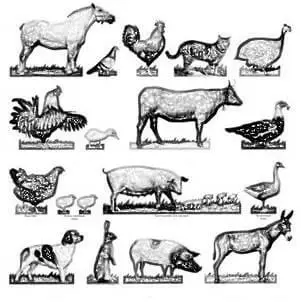Pay money, especially a payment that is in arrears.
Pony up
What's the meaning of the phrase 'Pony up'?
What's the origin of the phrase 'Pony up'?
‘Pony up’ is very much an American phrase and most people in the USA will know its meaning, whereas elsewhere in the English-speaking world the expression is rarely used. In the UK we are more likely to ‘stump up’ and in Australia and New Zealand money is ‘fronted up’. So what have ponies got to do with paying money?
A pony is of course a small horse and that meaning has been in use since the mid-1600s. The word has several other slang meanings, including:
– A small measure of alcohol (British, first documented in 1708)
– A short crib sheet or study aid (American, 1827)
– Twenty-five pounds (British slang, 1797)
– An abridged news report (American, 1877)
In the 1950s, ‘pony’ was also adopted as Cockney Rhyming Slang for ‘rubbish; nonsense’. The full version of the rhyme is ‘pony and trap‘ – and I’ll leave it to you to figure out what ‘trap’ rhymes with.
The first use of ‘pony up’ in print that I can find is in the Connecticut publication The Rural Magazine, May 1819:
The afternoon, before the evening, the favoured gentlemen are walking rapidly into the merchant-tailors shops, and very slowly out, unless they ponied up the Spanish [the money].
It is most likely that the expression was coined in the USA, but a claim can also be made for a British origin. ‘Pony up’ was recorded in the UK in the 19th century, in Thomas Darlington’s glossary Folk-speech of South Cheshire, 1887:
Pony, to pay. To ‘pony out’ = ‘stump out’; a slang term.
Clearly, that is later than the American first usage, but how long it had been in vernacular use in England before Darlington recorded it is difficult to say. It is unlikely that the term migrated to Cheshire from the USA; migrations, of people and of language, were largely in the other direction at that date.
Whatever the location of the first use, it is clear from the ‘pay money’ meaning of ‘pony up’ that the pony in question is some form of currency or donation. The British ‘twenty five pounds’ meaning is a possibility, but seems rather too specific an amount; after all we can ‘pony up’ any amount. In fact, none of the numerous meanings of ‘pony’ appear to fit the bill and it may be that we are backing the wrong horse.
Enter stage right, a dark horse of another colour. The English quarter day of March 25th was the day that debts were settled and payments were made. The first two words of the fifth division of Psalm 119, which was always sung at Matins on the 25th day of the month, are ‘Legem pone’. The term became associated with the payment of debts and was used as an allusive expression for ‘payment of money; cash down’. That meaning of ‘legem pone’ was recorded as early as 1570 by Thomas Tusser in Hundreth Good Pointes Husbandry:
Use Legem pone to pay at thy day,
Was that the source of the term ‘pony up’ and should we really be spelling it ‘pone up’? Well, we don’t know for certain but, in a two-horse race, it seems a better place for your money than the eponymous pony.
The history of “Pony up” in printed materials
Trend of pony up in printed material over time
Related phrases and meanings
Browse more Phrases
About the Author

Phrases & Meanings
A-Z
A B C D E F G H I J K L M N O P Q R S T UV W XYZ
Categories
American Animals Australian Bible Body Colour Conflict Death Devil Dogs Emotions Euphemism Family Fashion Food French Horses ‘Jack’ Luck Money Military Music Names Nature Nautical Numbers Politics Religion Shakespeare Stupidity Entertainment Weather Women Work
How did we do?
Have you spotted something that needs updated on this page? We review all feedback we receive to ensure that we provide the most accurate and up to date information on phrases.
